The Department of Fire Protection Engineering (https://fpe.umd.edu) at the University of Maryland – College Park (UMD) is looking for a motivated post-doctoral fellow to lead a project on rapid suppression of wildland fire. UMD is building a multidisciplinary team to enter the XPRIZE Wildfire Competition (https://www.xprize.org/prizes/wildfire) and expects the post-doctoral fellow to serve as one of the managers on this team. This is an 18-month appointment with a possible extension. We are looking for a candidate with a recent PhD in fire, mechanical or aerospace engineering. Experience with fire suppression and/or unmanned aerial vehicles (UAVs) is desirable but not required. Interested candidates should send their CV and a list of references to Prof. Stanislav I. Stoliarov ([email protected]). For best consideration, please submit your application on or before March 1, 2024.
Positions at Postdoctoral, Doctoral and Master’s Levels, The Department of Fire Protection Engineering at the University of Maryland, College Park
The Department of Fire Protection Engineering (FPE Dept) at the University of Maryland, College Park has
openings for postdoc, PhD students and master’s degree students, starting in Spring 2024 or Fall 2024.
Candidates with research experiences or knowledge in combustion, fire tests and simulation, computer
vision, or machine learning are preferred. The successful candidates will work closely with the PIs (Dr
Shuna Ni, Dr Stanislav I. Stoliarov and Dr Arnaud Trouvé) on projects that meet the mutual interests of the
PIs and the candidates. Interested students should contact Dr. Shuna Ni at [email protected] with “Ni Lab
application” in the subject line. Please include a CV or resume, transcripts (both undergraduate and
graduate), a brief statement of research experience and interests, and contact information of 2-3 referees
in the email.
See details at https://iafss.org/wp-content/uploads/2023/11/Job-Type_Graduates_UMD_fire_11212023.pdf
PhD Opportunity in Wildland Fire Modelling and Risk Assessment at University of Canterbury
Applications are invited for a fully funded three-year PhD scholarship in the department of Civil and Natural Resources Engineering, to work under on a wildland fire modelling and risk assessment under the supervision of Dr Andres Valencia (UC Senior Supervisor), Dr Marwan Katurji (co-supervisor) and Tom Logan (co-supervisory) in the context of the Project “Extreme fire behaviour, are we ready?” founded by Ministry of Business, Innovation and Employment (MBIE).
More information is available here.
PhD Studentship: Fire Protection of Structural Steel University of Central Lancashire
Structural steel is rapidly replacing concrete as a sustainable, recyclable framework for large modern buildings. A major problem faced by steel is its reduction in strength in fires. Once the temperature reaches 550°C it ceases to be able to support its design load which can lead to catastrophic collapse. Our collaborator, CPG Europe is a major manufacturer of fire protective intumescent coatings. Intumescent coatings, which appear as a thick paint layer, are designed to swell to 100 times their thickness in the event of a fire, providing one or two hours’ insulation to maintain the structural integrity of the steel. This project will review the composition of the whole coating and address the need to change various components. The cone calorimeter will be used to investigate the swelling at various stages in the process, in order to optimise formulations. The results will be compared with those from the large-scale furnace tests.
University of CanterburyLecturer / Senior Lecturer in Fire Engineering
What You Will Do
Applications are invited for a position in the Department of Civil and Natural Resources Engineering at the level of Lecturer (equivalent to Assistant Professor in the US System).
This is an exciting opportunity to participate in the further growth of the fire engineering programme in a dynamic and productive department. Research and teaching interests in one or more of the following areas would be an advantage (though applicants with interests in other fire engineering specialties are also encouraged to apply): numerical and experimental study of fire and wildland fire behaviour and suppression; wildfire engineering; fire dynamics, material behaviour in fires, fire safety systems, fire safety design practice, performance-based fire safety design, fire risk assessment or fire risk management. Teaching on undergraduate programmes also possible.
Mōu | Who You Are
Applicants must hold a Ph.D. degree in a relevant discipline and have a demonstrated record of published research in fire engineering. The successful candidate will have a commitment to excellence in teaching of core courses in fire engineering at both the undergraduate and postgraduate levels, and will be expected to establish a vigorous research programme. The appointee will be expected to supervise final year undergraduate projects, Masters and Ph.D. students, collaborate with others in the University, and to contribute to Departmental, Faculty, and University activities. The appointee will also be expected to develop links with and contribute to the wider engineering profession at local, national and international levels.
Mahi Ngātahi | Who You Will Work With
The successful appointee will have access to a range of research facilities (with technical staff) and expertise in related disciplines. The Faculty of Engineering has just completed a $163 million investment of its engineering specialist laboratory wings and main teaching spaces. Staff and students now have access to some of the best modern facilities and technologies for teaching, learning and research in the southern hemisphere. Every area has been designed with the principles of highly flexible learning spaces, collaborative open areas and engineering on display. In particular, a new fire engineering laboratory with capacity to test fire and structural fire behaviour up to two-storeys high has just been commissioned. Large-scale fire testing facilities are also available from time to time at the Building Research Association New Zealand (BRANZ) in Wellington, through collaborative research programmes.
For more information about our department and team, please visit our website.
Ngā Painga o UC | Why UC
In 2023 UC is celebrating 150 years of accessible education. The past, the present and the future are intertwined. For more information on our 150th Anniversary visit us here.
Ngā Uara | Our Values of manaakitanga, whanaungatanga and tiakitanga guide our decisions and behaviour and provide a roadmap for how we do things at UC, affirming our commitment to pastoral care and support for our ākonga and staff. They challenge and inspire us to be the best we can, and make UC a great place to work and study. For more info on Ngā Uara | Our Values visit us here.
We are committed to accessible higher education, service to the community and the encouragement of talent without barriers of distance, wealth, class, gender or ethnicity. The University explicitly aims to produce graduates and support staff who are engaged with their communities, empowered to act for good and determined to make a difference in the world.
We offer a range of fantastic benefits including flexible work practices, study opportunities and generous superannuation and leave provisions. For more information, please visit us: https://www.canterbury.ac.nz/joinus/benefits/
For more information about Te Whare Wānanga o Waitaha | University of Canterbury, please visit https://www.canterbury.ac.nz/
The salary for this position on the academic salary scale is Lecturer (2.01 – $86,197 to 2.06 – $104,487), Senior Lecturer (4.01 – $109,977 to 4.05 -$124,732), Senior Lecturer Above the Bar (5.01 – $130,223 to 5.03 – $137,769)
The closing date for this position is: 20 July 2023 (midnight, NZ time)
Please note, applications will be reviewed as they are received, and interviews may take place before the close date. Or Please note applications will be reviewed after the close date.
Pēhea te tono mai | How You Apply
Applications for this position must be submitted via our careers website and should include a cover letter and resume.
Please note, we do not accept applications by email, however we are happy to answer your queries in relation to the application process, please forward these to [email protected]
You must have Aotearoa New Zealand or Australian citizenship/permanent residency to be considered for this role. If you hold a valid work visa and are physically present in New Zealand then you may also be considered.
Call for Award Nominations
Please review the Call for Nominations for details on the awards to be presented at the 14th International Symposium on Fire Safety Science in Tsukuba, Japan in October 2023.
The deadline for the Proulx and Magnusson Early Career Awards and Best Thesis Award “Excellence in Research” are October 1, 2022.
Division Chief for Fire Research Division at NIST
The NIST Engineering Laboratory is opening a search to fill the Division Chief position for the Fire Research Division. The attached document describes the position, and information about the position is also available online at https://www.nist.gov/el/about-el/careers . As noted in the announcement, interested candidates should send resumes to [email protected] by September 2, 2022.
HBIF IAFSS working group webinar series
The HBIF IAFSS working group is starting a webinar series. The the first event will be held in October and the topic will be academic publishing. The webinar includes some of the key editors in our field. You can read more in this flyer.
Notice of Plans for IAFSS General Meeting, Part 2
Dear IAFSS Member,
I trust you are doing well. I am writing with information about the 2021 IAFSS General Meeting, Part 2, which will be held on 30 April 2021, 13:00 UTC. The draft agenda for the meeting can be found here.
First, thank you to those who were able to join us on 24 March 2021 for Part 1 of the 2021 IAFSS General Meeting (GM). This was our first ever virtual GM, and although we had a few minor glitches, the meeting went well. The draft minutes for the GM Part 1 are attached to the draft agenda for the GM Part 2. As you will see, the proposed amendments to the Rules of the Association were approved, which formally allows us to proceed with a virtual GM Part 2. Click here to view the Rules of the Association.
As previously noted, we are changing the procedures for the GM Part 2, taking into account lessons learned and experiences gained from the GM Part 1, and aiming for a more interactive meeting.
- To limit the potential for non-members to join the meeting, all eligible members will be required to pre-register to attend the meeting. You will need to contact the Secretariat to pre-register. Upon verification of eligibility, you will be sent a meeting link and password.
- To assist us in checking attendees against our membership list, when logging into the meeting, please enter using your name in English as it correlates to your membership application.
- Since the meeting time is limited, please try to log in five (5) minutes prior to the start of the GM. Please check your hardware and connections prior to the meeting time.
- As with the GM Part 1, we are aiming to have any action required for voting to be presented in a form that votes can be simple ‘approve / disapprove / abstain’ where possible. This is largely driven by the limited time for discussion and the time allotted for the meeting.
- In the case where there is a vote that requires a choice between options (for example, if there are three candidates for Scrutineer and only two positions available), each option will be voted on separately, and the options receiving the highest vote counts will be taken as approved.
- Details of actions requiring votes, as initiated by the Committee, will be posted to the IAFSS website by 17 April for review, and as appropriate, to allow time to submit proxy votes by members who cannot attend the 30 April meeting. It is expected that this will include:
- Approval of past minutes of General Meetings of the Association (14 June 2017 and 24 March 2021)
- Approval of the Treasurer’s report
- Nominees for Honorary Auditors of the Association (two positions)
- Nominees for Scrutineers of the Association (two positions)
- Because time for discussion in the virtual GM Part 2 will be limited, any member who nominates members for the position of Honorary Auditor or Scrutineer, or proposes any action that will require a vote, or wishes to raise an item for discussion under Any Other Business, must provide text of the item in writing to the Honorary Secretary no later than 13 April 2021. This is to allow time for review, confirmation, and posting of the item by 17 April, and if needed, time to permit submittal of proxy votes by members who cannot attend.
- Due to time limitations, a maximum of five (5) minutes will be allotted for questions / discussion on any agenda item.
- Proxy voting forms, for those unable to attend, will be available on 17 April, once items for voting have been identified and confirmed. Note that it is intended to simplify the proxy form such that proxy votes will be given to the Honorary Secretary, unless another person is specifically designated. If another person is designated, confirmation is required from the designee, in advance of the GM, that they (a) agree to serve as proxy and (b) confirm that they will be in attendance at the meeting. This is to help assure that the proxy vote will be delivered and counted appropriately.
As a member, your participation in General Meetings and your vote on issues of importance to the Association is critically important. We ask that all who can attend and participate do so. For those unable to attend, and who would like to exercise their right to vote, you are asked to provide your proxy vote to the Honorary Secretary no later than 27 April.
Also, we appreciate that options for voting and discussion remain somewhat limited. However, we have presented a more flexible and participative arrangement for Part 2 of the GM, within the limitations of time and technology being used. Developing a more robust on-line GM approach for future meetings will be an action on the Committee going forward.
Again, thank you for your understanding and flexibility, and if you have questions for clarification, or comments on what has been proposed, please let me know. Thank you.
Respectfully submitted,
Brian Meacham
IAFSS Honorary Secretary ad interim
Draft Agenda for IAFSS General Meeting Part One
Please download the draft agenda for Part One of the IAFSS General Meeting here. The zoom link to attend the meeting is https://lu-se.zoom.us/j/62577478118

Download the proxy vote form here

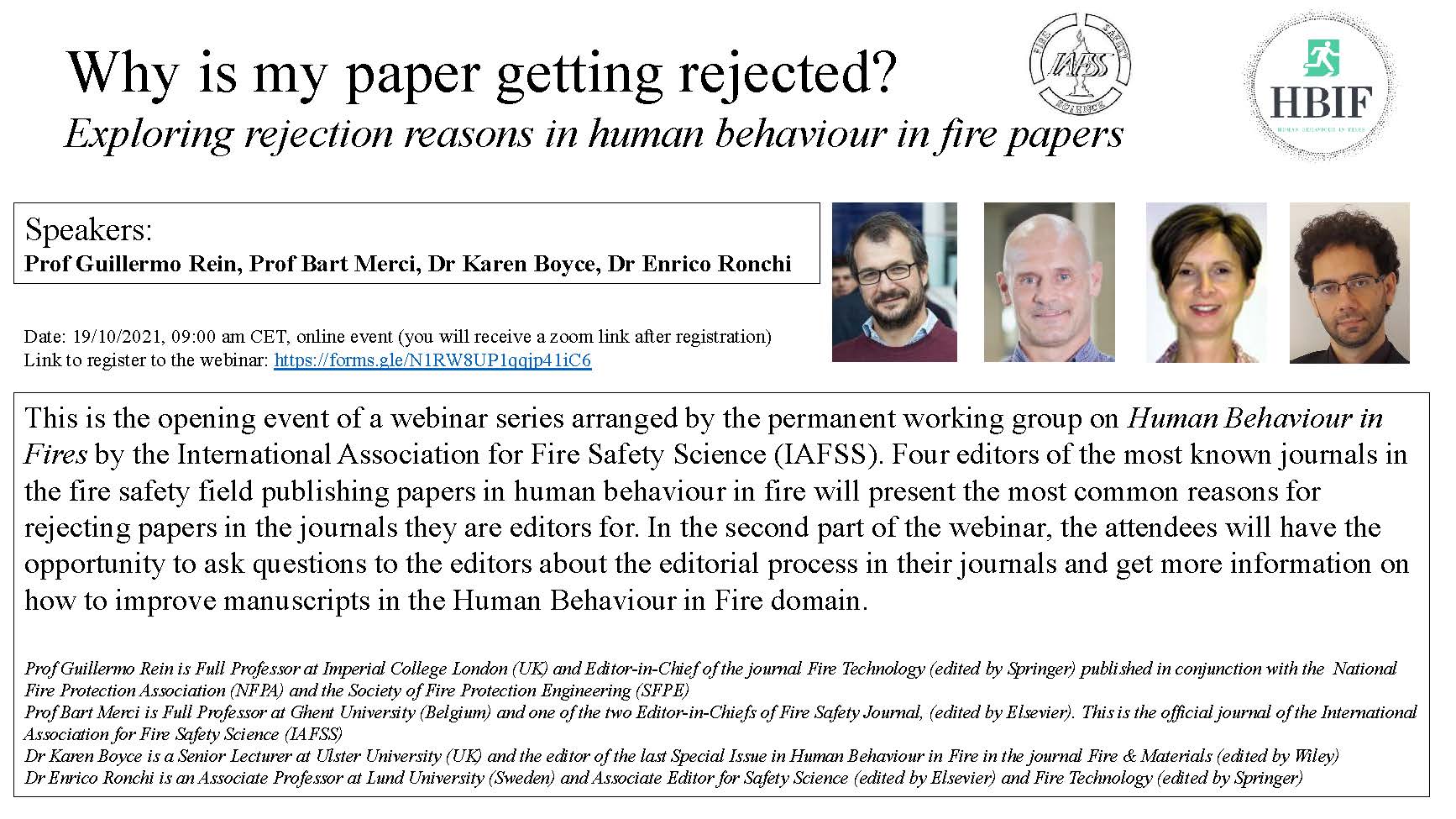
 Dr Natalia Flores-Quiroz is a researcher with experience in fire safety engineering. She worked for five years as a fire safety engineer in the mining industry before joining academia. She holds a MSc in fire safety from Ghent University, and her PhD focused on Fire investigations in Informal Settlements. Currently she is a lecturer at Stellenbosch University, where her main research areas are reconstruction of incidents in low-income settlements (i.e., informal settlements, refugee camps) and wildland urban interface (WUI) fires.
Dr Natalia Flores-Quiroz is a researcher with experience in fire safety engineering. She worked for five years as a fire safety engineer in the mining industry before joining academia. She holds a MSc in fire safety from Ghent University, and her PhD focused on Fire investigations in Informal Settlements. Currently she is a lecturer at Stellenbosch University, where her main research areas are reconstruction of incidents in low-income settlements (i.e., informal settlements, refugee camps) and wildland urban interface (WUI) fires. Bronwyn Forrest is a 3rd year PhD student at the University of Waterloo, conducting multi-disciplinary research investigating human physiological response to fire exposure. Bronwyn graduated in 2017 with a BSc. Honours Kinesiology and in 2020 with a MASc. Mechanical & Mechatronics Engineering (Heat Release Rate in Ventilation-Limited Furniture Fires) before merging her two degrees in her PhD research. As a senior graduate student in the Fire Research Group, Bronwyn spear-heads large-scale fire experiments, mentors junior graduate and undergraduate students, and has recently set-up a new ‘human exposure lab’ at the Fire Research Facility where she leads new research in that area. Since her induction into the world of fire science, Bronwyn has grown more and more passionate about the multi-faceted nature of emerging fire safety challenges. Through innovative research, she hopes to make meaningful contributions that help shape changes to fire safety over the course of her career.
Bronwyn Forrest is a 3rd year PhD student at the University of Waterloo, conducting multi-disciplinary research investigating human physiological response to fire exposure. Bronwyn graduated in 2017 with a BSc. Honours Kinesiology and in 2020 with a MASc. Mechanical & Mechatronics Engineering (Heat Release Rate in Ventilation-Limited Furniture Fires) before merging her two degrees in her PhD research. As a senior graduate student in the Fire Research Group, Bronwyn spear-heads large-scale fire experiments, mentors junior graduate and undergraduate students, and has recently set-up a new ‘human exposure lab’ at the Fire Research Facility where she leads new research in that area. Since her induction into the world of fire science, Bronwyn has grown more and more passionate about the multi-faceted nature of emerging fire safety challenges. Through innovative research, she hopes to make meaningful contributions that help shape changes to fire safety over the course of her career.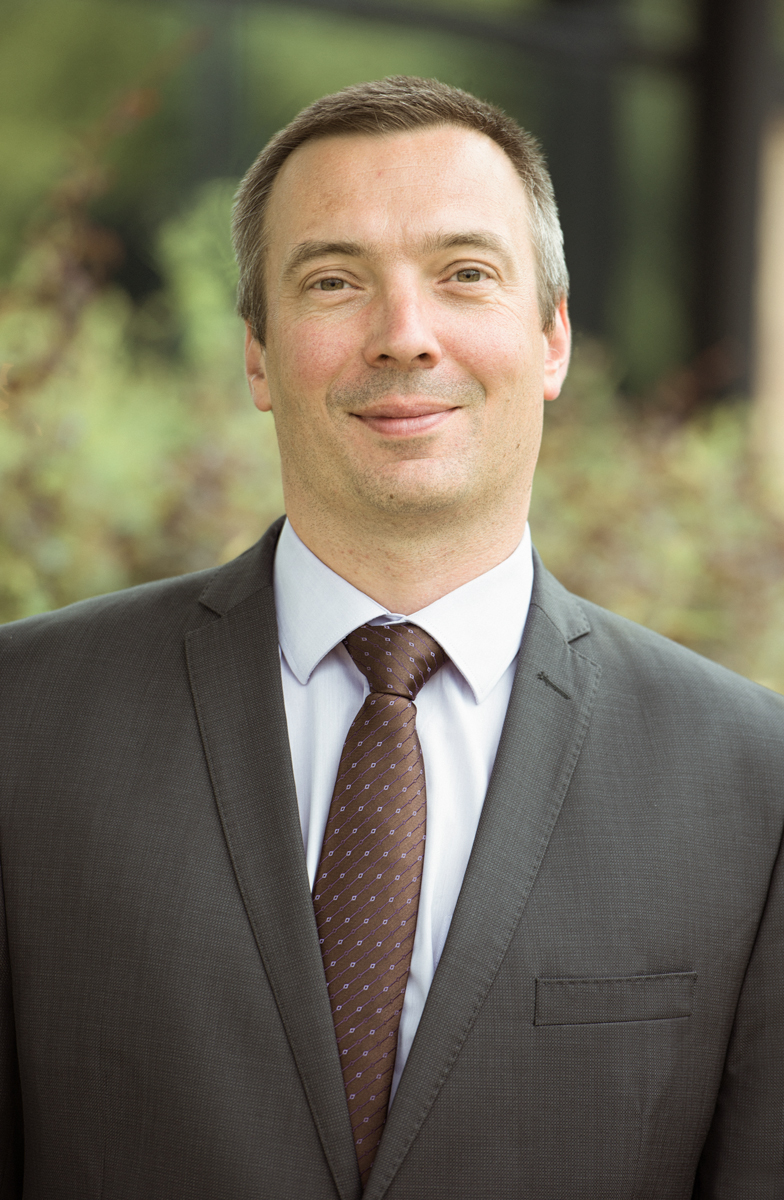 Dr. (HDR) Eric Guillaume has worked in fire sciences since 1998. He formerly led the fire behaviour department of SNCF (French Railway), then changed company in 2005 to join LNE (The French National Laboratory for Testing and Metrology) as head of Fire safety studies department, and later as head of research for whole testing activities of LNE. Nowadays (since 2015), he works for Efectis France, first as Technical Director and more recently as General Manager of the company, leading one of the most important fire testing and fire safety engineering companies in Europe (With approx. 180 people and 28 M€ turnover)
Dr. (HDR) Eric Guillaume has worked in fire sciences since 1998. He formerly led the fire behaviour department of SNCF (French Railway), then changed company in 2005 to join LNE (The French National Laboratory for Testing and Metrology) as head of Fire safety studies department, and later as head of research for whole testing activities of LNE. Nowadays (since 2015), he works for Efectis France, first as Technical Director and more recently as General Manager of the company, leading one of the most important fire testing and fire safety engineering companies in Europe (With approx. 180 people and 28 M€ turnover)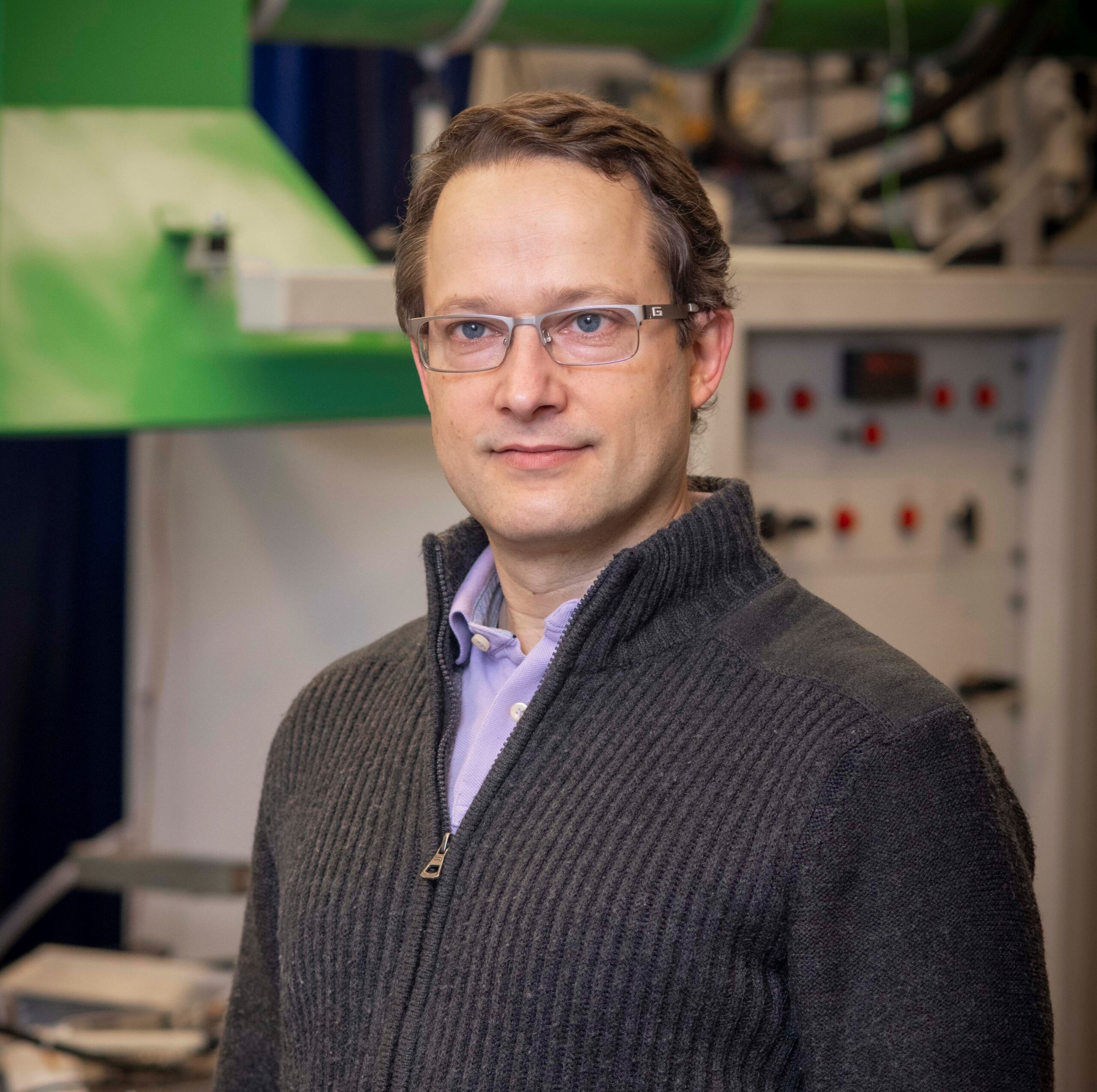 Dr. Albert Simeoni is Professor and the Department Head of Fire Protection Engineering at Worcester Polytechnic Institute (WPI). He is the WPI site director of the Wildfire Interdisciplinary Research Center (WIRC), an Industry-University Cooperative Research Center (IUCRC) of the National Science Foundation (NSF) in the United States. Dr. Simeoni has served IAFSS by being chair or co-chair of the Wildland Fire track (2014, 2020 and 2023), Co-chair of the Awards Committee for the Best Thesis Awards (2023), Associate-Editor of Fire Safety Journal (2010-2015), member of the Editorial Board of Fire Safety Journal (since 2016), and Contributing Editor of Fire Safety Science News (since 2011).
Dr. Albert Simeoni is Professor and the Department Head of Fire Protection Engineering at Worcester Polytechnic Institute (WPI). He is the WPI site director of the Wildfire Interdisciplinary Research Center (WIRC), an Industry-University Cooperative Research Center (IUCRC) of the National Science Foundation (NSF) in the United States. Dr. Simeoni has served IAFSS by being chair or co-chair of the Wildland Fire track (2014, 2020 and 2023), Co-chair of the Awards Committee for the Best Thesis Awards (2023), Associate-Editor of Fire Safety Journal (2010-2015), member of the Editorial Board of Fire Safety Journal (since 2016), and Contributing Editor of Fire Safety Science News (since 2011). Brian J. Meacham, PhD, PE (CT&MA), EUR ING, CEng (UK), FIFireE, FSFPE, is the Managing Principal of Meacham Associates. He develops risk-informed performance-based solutions to complex building and infrastructure challenges, provides peer-review services, and undertakes building and fire regulatory system studies. He also conducts research in these areas as well as in sustainable and fire resilient built environments and fire safety technologies. Brian has authored more than 300 publications, given more than 300 presentations and has been awarded more than $4M in research funding. His prior positions include Associate Professor of Fire Protection Engineering at Worcester Polytechnic Institute, Principal at Arup, Technical Director and Research Director at SFPE, and fire safety engineer in Europe and the USA. Brian is Chair of the ICC Performance Code Committee, Chair of the NFPA Technical Committee on Fire Risk Assessment Methods, Immediate Past Chair of the International Association for Fire Safety Science (IAFSS), a Past President of the SFPE, and a past Chair of the Inter-jurisdictional Regulatory Collaboration Committee (IRCC). He is a licensed Professional Engineer in CT and MA, a Chartered Engineer and Fellow of the Institution of Fire Engineers (UK), a registered European Engineer (EUR ING), a Fellow of the SFPE, and a Fulbright Global Scholar.
Brian J. Meacham, PhD, PE (CT&MA), EUR ING, CEng (UK), FIFireE, FSFPE, is the Managing Principal of Meacham Associates. He develops risk-informed performance-based solutions to complex building and infrastructure challenges, provides peer-review services, and undertakes building and fire regulatory system studies. He also conducts research in these areas as well as in sustainable and fire resilient built environments and fire safety technologies. Brian has authored more than 300 publications, given more than 300 presentations and has been awarded more than $4M in research funding. His prior positions include Associate Professor of Fire Protection Engineering at Worcester Polytechnic Institute, Principal at Arup, Technical Director and Research Director at SFPE, and fire safety engineer in Europe and the USA. Brian is Chair of the ICC Performance Code Committee, Chair of the NFPA Technical Committee on Fire Risk Assessment Methods, Immediate Past Chair of the International Association for Fire Safety Science (IAFSS), a Past President of the SFPE, and a past Chair of the Inter-jurisdictional Regulatory Collaboration Committee (IRCC). He is a licensed Professional Engineer in CT and MA, a Chartered Engineer and Fellow of the Institution of Fire Engineers (UK), a registered European Engineer (EUR ING), a Fellow of the SFPE, and a Fulbright Global Scholar.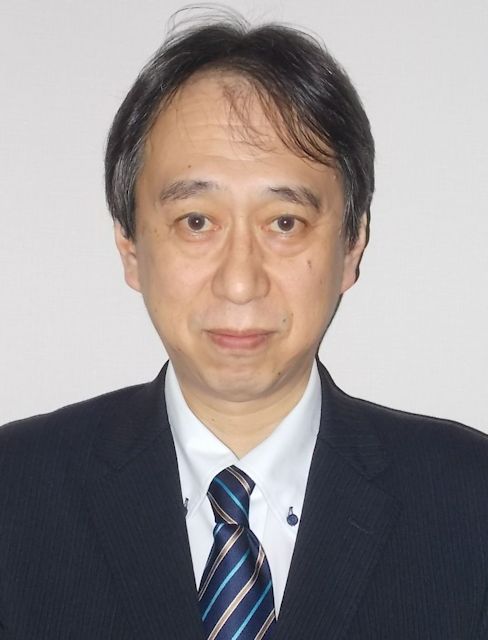 Kazunori Harada is a professor of architecture & architectural engineering at Kyoto University, Japan. He has a career in fire research for over 35 years. He has authored 14 IAFSS symposium papers. His expertise covers the fire resistance of construction materials, smoke movement and control, burning of combustibles in open and compartment, performance-based code & design of buildings and so on. He serves as a vice president of AOAFST, Asia-Oceania Association of Fire Science and Technology. He also serves as the Convenor of ISO/TC92/SC4 WG9, calculation methods for fire safety engineering (FSE), which develops calculation standards concerning FSE.
Kazunori Harada is a professor of architecture & architectural engineering at Kyoto University, Japan. He has a career in fire research for over 35 years. He has authored 14 IAFSS symposium papers. His expertise covers the fire resistance of construction materials, smoke movement and control, burning of combustibles in open and compartment, performance-based code & design of buildings and so on. He serves as a vice president of AOAFST, Asia-Oceania Association of Fire Science and Technology. He also serves as the Convenor of ISO/TC92/SC4 WG9, calculation methods for fire safety engineering (FSE), which develops calculation standards concerning FSE. Dr Xinyan Huang is an Associate Professor at The Hong Kong Polytechnic University and the Deputy Director of the Research Centre for Fire Safety Engineering. He received his PhD from Imperial College London, MSc from UC San Diego, and BEng from Southeast University, and was a Postdoc at UC Berkeley. Dr Huang is a Combustion Scientist and a Fire Safety Engineer who has co-authored over 200 journal papers. He is an Associate Editor of Fire Technology and International Journal of Wildland Fire, an editorial member of J. Building Engineering, Fire Safety J. and Fire and Materials, a Chartered Building Services and Fire Engineer, a committee member for HK Fire Safety Code, and a Fire Expert for HK High Court. He receives the NSFC Excellent Young Scientists Fund, Bernard Lewis Fellowship and Sugden Best Paper Award from Combustion Institute, “5 under 35” and Bono Award from the Society of Fire Protection Engineers (SFPE).
Dr Xinyan Huang is an Associate Professor at The Hong Kong Polytechnic University and the Deputy Director of the Research Centre for Fire Safety Engineering. He received his PhD from Imperial College London, MSc from UC San Diego, and BEng from Southeast University, and was a Postdoc at UC Berkeley. Dr Huang is a Combustion Scientist and a Fire Safety Engineer who has co-authored over 200 journal papers. He is an Associate Editor of Fire Technology and International Journal of Wildland Fire, an editorial member of J. Building Engineering, Fire Safety J. and Fire and Materials, a Chartered Building Services and Fire Engineer, a committee member for HK Fire Safety Code, and a Fire Expert for HK High Court. He receives the NSFC Excellent Young Scientists Fund, Bernard Lewis Fellowship and Sugden Best Paper Award from Combustion Institute, “5 under 35” and Bono Award from the Society of Fire Protection Engineers (SFPE).
 Arnaud Trouvé is Professor and Chair in the Department of Fire Protection Engineering at the University of Maryland in College Park, USA. He joined the Faculty in 2001 with a Ph.D. (1989) and Engineering Degree (1985) from École Centrale of Paris, France, and with previous experience as a combustion research engineer. Professor Trouvé’s research interests include fire modeling and Computational Fluid Dynamics (CFD); application of data assimilation to fire and combustion; and physical modeling of combustion- and fire-related phenomena, including compartment fires, wildland fires and explosions. Professor Trouvé is a Fellow of the Combustion Institute and the recipient of the 2017 FORUM Sjölin Award. He has served on the editorial boards of the Proceedings of the Combustion Institute, Progress in Energy and Combustion Science, Combustion and Flame, and Fire Technology, and is currently on the editorial boards of Combustion Theory and Modelling and the Fire Safety Journal. Professor Trouvé is also a past Chair of the US Eastern States Section of the Combustion Institute (ESSCI) and a past Member of the Executive Board of the International Association for Fire Safety Science (IAFSS). He is a co-Chair of a recent initiative endorsed by IAFSS and called the “IAFSS Working Group on Measurement and Computation of Fire Phenomena” (the MaCFP Working Group) and the past Chair of a new network of leading higher-education institutions and research laboratories in fire safety engineering called the International Fire Safety Consortium (IFSC).
Arnaud Trouvé is Professor and Chair in the Department of Fire Protection Engineering at the University of Maryland in College Park, USA. He joined the Faculty in 2001 with a Ph.D. (1989) and Engineering Degree (1985) from École Centrale of Paris, France, and with previous experience as a combustion research engineer. Professor Trouvé’s research interests include fire modeling and Computational Fluid Dynamics (CFD); application of data assimilation to fire and combustion; and physical modeling of combustion- and fire-related phenomena, including compartment fires, wildland fires and explosions. Professor Trouvé is a Fellow of the Combustion Institute and the recipient of the 2017 FORUM Sjölin Award. He has served on the editorial boards of the Proceedings of the Combustion Institute, Progress in Energy and Combustion Science, Combustion and Flame, and Fire Technology, and is currently on the editorial boards of Combustion Theory and Modelling and the Fire Safety Journal. Professor Trouvé is also a past Chair of the US Eastern States Section of the Combustion Institute (ESSCI) and a past Member of the Executive Board of the International Association for Fire Safety Science (IAFSS). He is a co-Chair of a recent initiative endorsed by IAFSS and called the “IAFSS Working Group on Measurement and Computation of Fire Phenomena” (the MaCFP Working Group) and the past Chair of a new network of leading higher-education institutions and research laboratories in fire safety engineering called the International Fire Safety Consortium (IFSC). Dr Felix Wiesner is an Assistant Professor at the University of British Columbia and study the role of engineered timber in fire safety. I work in the Faculty of Forestry as part of the Wood Science department. My research focus has mostly been experimental, considering fire dynamics in timber compartments and the structural fire capacity of engineered timber products. In addition, I am interested in the performance of timber in exterior building or infrastructure setting. This closely interfaces with wildfire considerations for the wildland urban interface (WUI), especially when it comes to smouldering.
Dr Felix Wiesner is an Assistant Professor at the University of British Columbia and study the role of engineered timber in fire safety. I work in the Faculty of Forestry as part of the Wood Science department. My research focus has mostly been experimental, considering fire dynamics in timber compartments and the structural fire capacity of engineered timber products. In addition, I am interested in the performance of timber in exterior building or infrastructure setting. This closely interfaces with wildfire considerations for the wildland urban interface (WUI), especially when it comes to smouldering.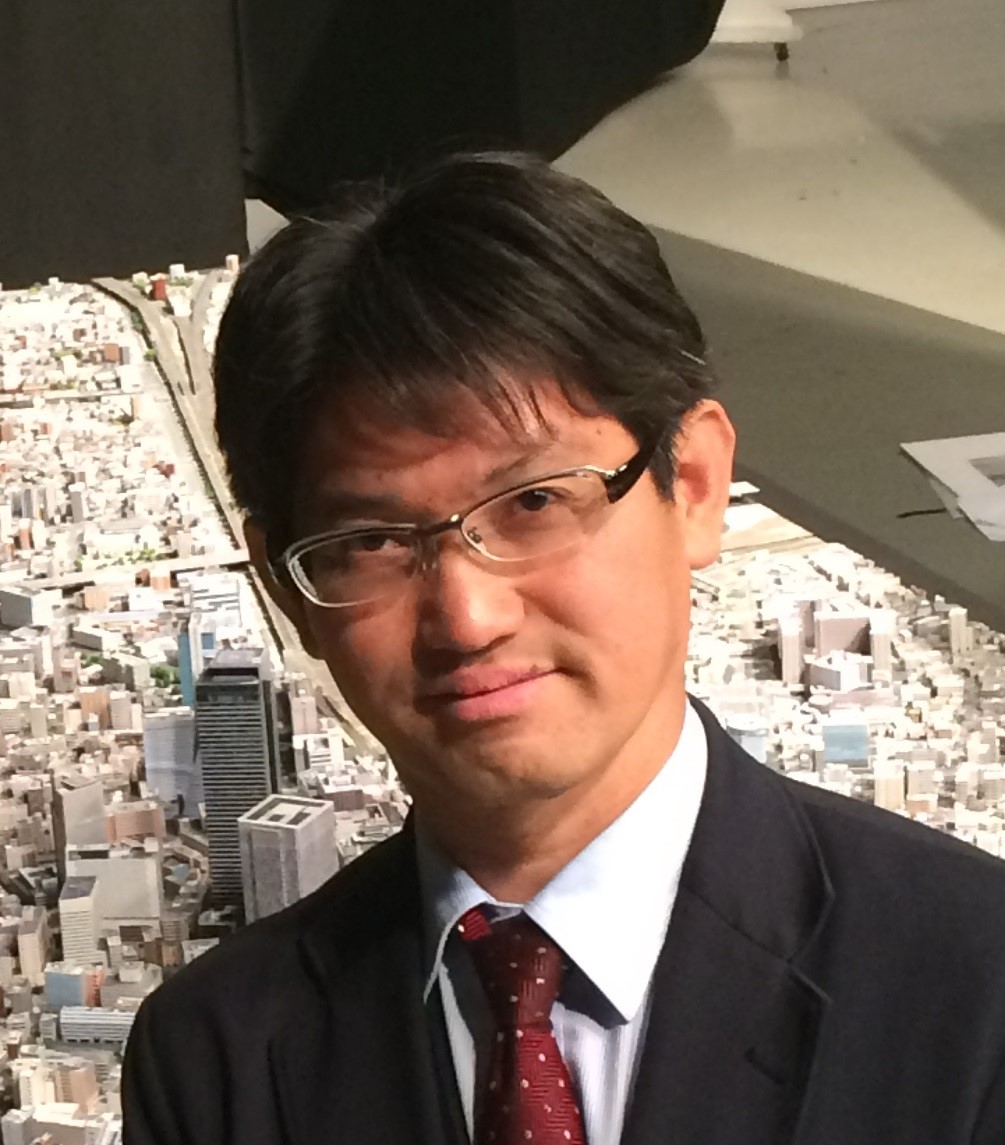 Prof. Yuji Nakamura is Full Professor in Department of Mechanical Engineering, Toyohashi University of Technology (TUT), appointed as Affiliate Full Professor in Center for Fire Science and Technology, Tokyo University of Science (since 2014). He currently serves the Head of Energy Conversion Laboratory and appointed as Department Chair since 2024. Prof. Nakamura has made professional service in Fire Science Community served as Management Committee of IAFSS during 2021-2023, worked as Co-chair of LOC in the most recent IAFSS symposium at Tsukuba, acting Associate Editor of Fire Technology since 2014 and board member of Fire Safety Journal since 2017.
Prof. Yuji Nakamura is Full Professor in Department of Mechanical Engineering, Toyohashi University of Technology (TUT), appointed as Affiliate Full Professor in Center for Fire Science and Technology, Tokyo University of Science (since 2014). He currently serves the Head of Energy Conversion Laboratory and appointed as Department Chair since 2024. Prof. Nakamura has made professional service in Fire Science Community served as Management Committee of IAFSS during 2021-2023, worked as Co-chair of LOC in the most recent IAFSS symposium at Tsukuba, acting Associate Editor of Fire Technology since 2014 and board member of Fire Safety Journal since 2017.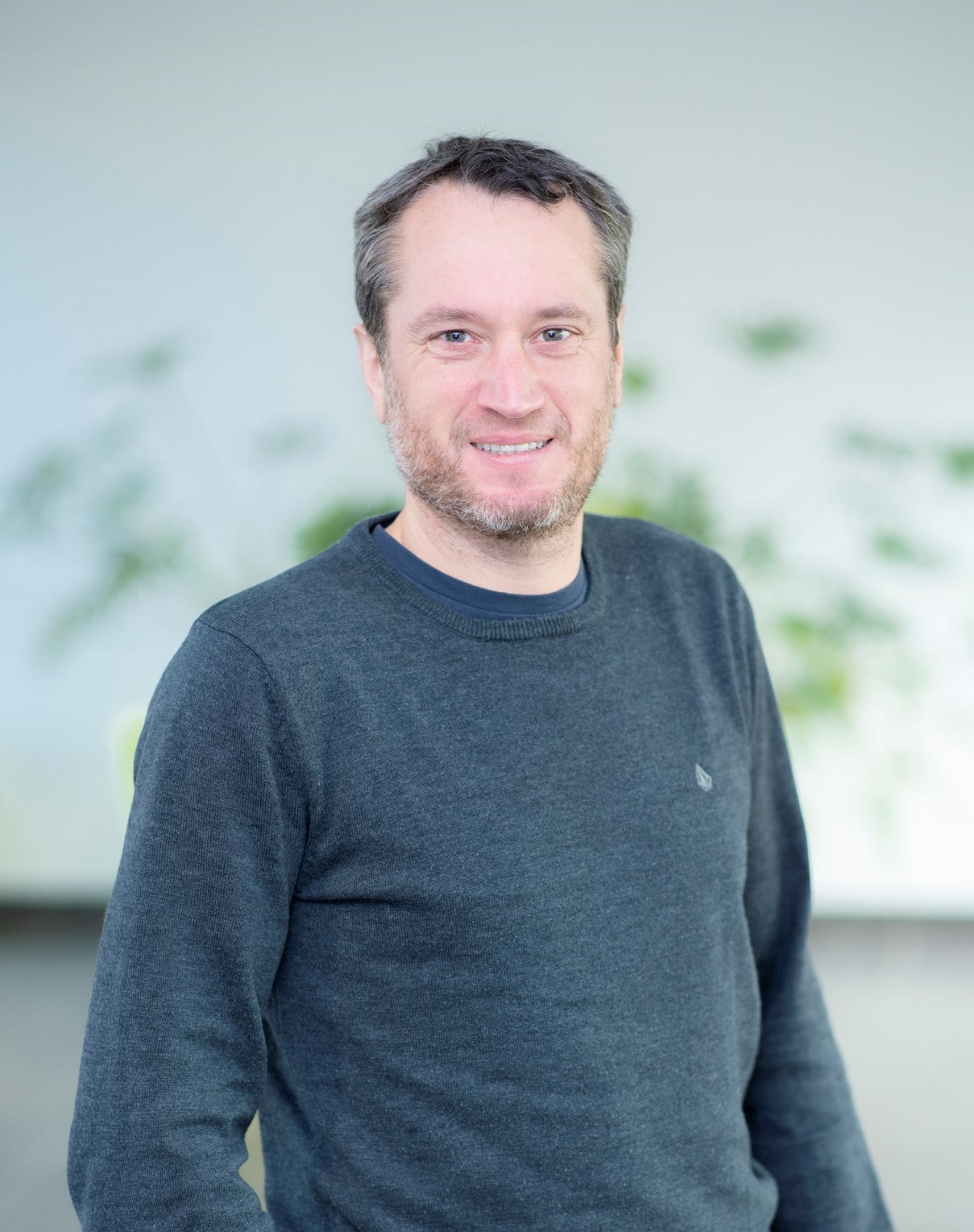 ROGAUME Thomas is an Professor at the University of Poitiers – Pprime Institute (UPR3346 CNRS), FRANCE.
ROGAUME Thomas is an Professor at the University of Poitiers – Pprime Institute (UPR3346 CNRS), FRANCE. Yu Wang is a professor at the State Key Laboratory of Fire Science, University of Science and Technology of China (USTC). He got joint Ph.D. from USTC and the City University of Hong Kong in 2016 and had working experience at the University of Edinburgh, Worcester Polytechnic Institute and National University of Singapore before returning to China in 2020. His primary research areas are high-rise building fire and large outdoor fire. Yu has published over 50 SCI journal papers, and is currently an Associate Editor in Fire Technology and Editorial Board Member in Fire Safety Journal. He initiated the first English fire course at USTC, Introduction of Fire Dynamics, reported by China News and People’s Daily Online (over 260,000 audiences). In recent years, he has received SFPE Global 5 Under 35 Award, Youth May Fourth Medal (Anhui Province), Young Faculty Career Award (USTCAF), and some Best Paper/Presentation/Poster/Image Awards in IAFSS or AOSFST.
Yu Wang is a professor at the State Key Laboratory of Fire Science, University of Science and Technology of China (USTC). He got joint Ph.D. from USTC and the City University of Hong Kong in 2016 and had working experience at the University of Edinburgh, Worcester Polytechnic Institute and National University of Singapore before returning to China in 2020. His primary research areas are high-rise building fire and large outdoor fire. Yu has published over 50 SCI journal papers, and is currently an Associate Editor in Fire Technology and Editorial Board Member in Fire Safety Journal. He initiated the first English fire course at USTC, Introduction of Fire Dynamics, reported by China News and People’s Daily Online (over 260,000 audiences). In recent years, he has received SFPE Global 5 Under 35 Award, Youth May Fourth Medal (Anhui Province), Young Faculty Career Award (USTCAF), and some Best Paper/Presentation/Poster/Image Awards in IAFSS or AOSFST. Brian Lattimer, Ph.D. is a Professor in Mechanical Engineering at Virginia Tech where he performs experimental and computational research on fire safety and disaster resilience. He has nearly 30 years of experience in fire related research. His research areas include material behavior in fires, fire dynamics, suppression agents, heat transfer from fires to surfaces, structural response during fire, and firefighting technology.
Brian Lattimer, Ph.D. is a Professor in Mechanical Engineering at Virginia Tech where he performs experimental and computational research on fire safety and disaster resilience. He has nearly 30 years of experience in fire related research. His research areas include material behavior in fires, fire dynamics, suppression agents, heat transfer from fires to surfaces, structural response during fire, and firefighting technology.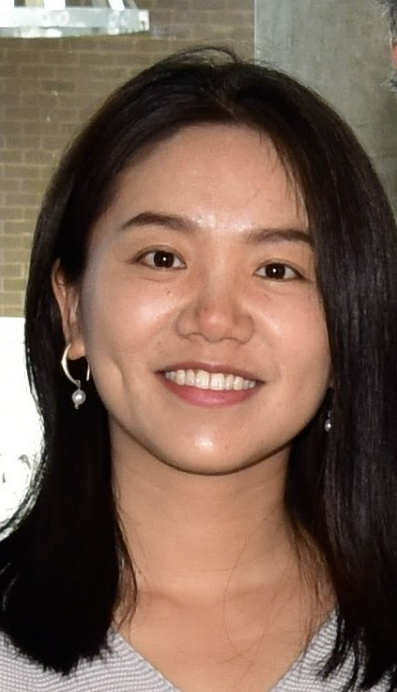 Dr. Shuna Ni is an Assistant Professor in the Department of Fire Protection Engineering at the University of Maryland, College Park. She received her Ph.D. degree at Texas A&M University in 2018 and her Master’s degree at Tongji University in 2013. Dr. Ni’s research focuses on fire forensics, structural fire engineering, WUI fire resilience, fire safety of tall mass-timber buildings and fire-related multiple hazards. Her research has been funded by National Science Foundation, National Institute of Justice, Fire Protection Research Foundation, University Transportation Centers under the Department of Transportation, Grand Challenges Grants Program at the University of Maryland and industrial partners.
Dr. Shuna Ni is an Assistant Professor in the Department of Fire Protection Engineering at the University of Maryland, College Park. She received her Ph.D. degree at Texas A&M University in 2018 and her Master’s degree at Tongji University in 2013. Dr. Ni’s research focuses on fire forensics, structural fire engineering, WUI fire resilience, fire safety of tall mass-timber buildings and fire-related multiple hazards. Her research has been funded by National Science Foundation, National Institute of Justice, Fire Protection Research Foundation, University Transportation Centers under the Department of Transportation, Grand Challenges Grants Program at the University of Maryland and industrial partners.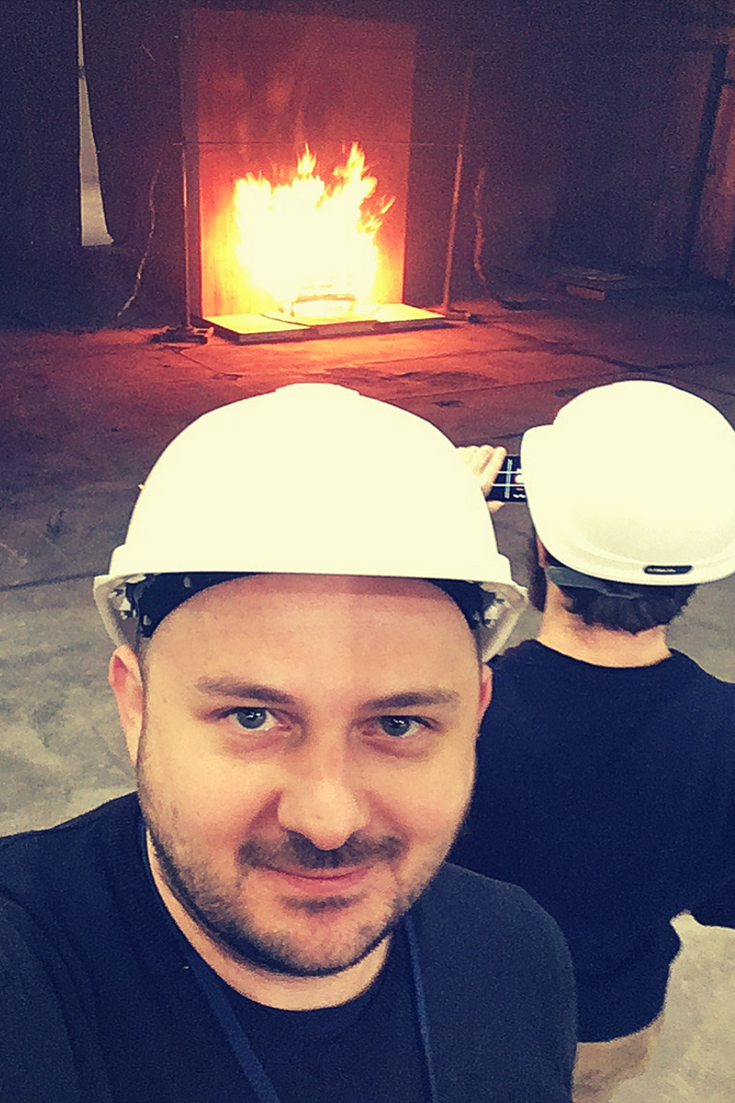 Dr Wojciech Węgrzyński is with ITB, that is the Polish Building Research Institute in Warsaw. He currently holds the position of the Deputy Head of Fire Research Department and the Professor of the Institute, and a Director at SFPE Europe. He is the Author of 40 peer-reviewed papers published in all of the primary FSE journals. His main area of interest is the fundamentals of compartment fire dynamics and standardized fire testing, and also: use of computational fluid dynamics in fire, wind and fire interaction and evaluation of the effects of the spread of smoke in buildings. His research is focused on the impact of the architectural context of the building on the smoke control performance, as well as finding solutions to make the smoke exhaust systems cheaper and more efficient. Member of the Sub-committee for Research of the IAFSS. 2018 NFPA Harry C. Bigglestone Award Recipient; 2019 Jack Watts Award Recipient; 2020 SFPE 5 Under 35 Award Recipient. Member of Editorial Board of ‘Fire Technology. Hosts a fire podcast at
Dr Wojciech Węgrzyński is with ITB, that is the Polish Building Research Institute in Warsaw. He currently holds the position of the Deputy Head of Fire Research Department and the Professor of the Institute, and a Director at SFPE Europe. He is the Author of 40 peer-reviewed papers published in all of the primary FSE journals. His main area of interest is the fundamentals of compartment fire dynamics and standardized fire testing, and also: use of computational fluid dynamics in fire, wind and fire interaction and evaluation of the effects of the spread of smoke in buildings. His research is focused on the impact of the architectural context of the building on the smoke control performance, as well as finding solutions to make the smoke exhaust systems cheaper and more efficient. Member of the Sub-committee for Research of the IAFSS. 2018 NFPA Harry C. Bigglestone Award Recipient; 2019 Jack Watts Award Recipient; 2020 SFPE 5 Under 35 Award Recipient. Member of Editorial Board of ‘Fire Technology. Hosts a fire podcast at  Jennifer Wen is currently Professor of Energy Resilience in the School of Mechanical Engineering Sciences, University of Surrey as Professor. Previously, Jennifer held positions at Computational Dynamics Limited (founding vendor of STAR-CCM), British Gas plc, South Bank University, Kingston University London, and University of Warwick. She is a Fellow of the Institution of Mechanical Engineers and Vice-Chair for Research for the International Association for Fire Safety Science. Jennifer is also a member and sub-task leader of the European Safety Panel on Hydrogen Safety (EHSP) established by the Fuel Cell and Hydrogen Joint Undertaking (now Clean Hydrogen Partnership) of the European Commission. She is an Associate Editor for the Proceedings of the Combustion Institute.
Jennifer Wen is currently Professor of Energy Resilience in the School of Mechanical Engineering Sciences, University of Surrey as Professor. Previously, Jennifer held positions at Computational Dynamics Limited (founding vendor of STAR-CCM), British Gas plc, South Bank University, Kingston University London, and University of Warwick. She is a Fellow of the Institution of Mechanical Engineers and Vice-Chair for Research for the International Association for Fire Safety Science. Jennifer is also a member and sub-task leader of the European Safety Panel on Hydrogen Safety (EHSP) established by the Fuel Cell and Hydrogen Joint Undertaking (now Clean Hydrogen Partnership) of the European Commission. She is an Associate Editor for the Proceedings of the Combustion Institute.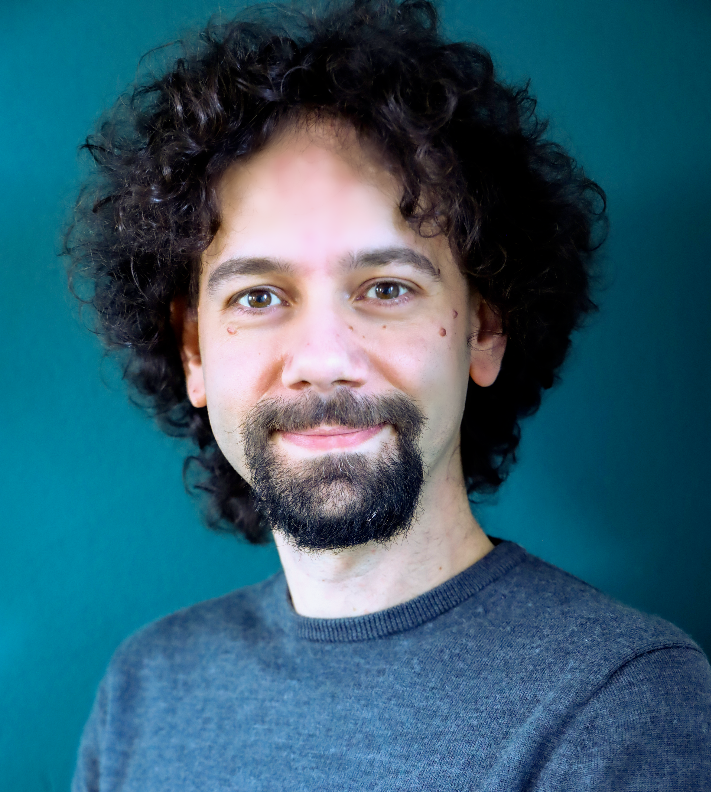 Enrico Ronchi is an Associate Professor at Lund University, Sweden. His research and education activities are focused on evacuation and human behaviour in case of building fires and wildfires. His work has been published in over 150 publications (including >90 peer-reviewed journal papers). He is currently Associate Editor for the journals Fire Technology and Safety Science and member of the editorial board of the Fire Safety Journal.
Enrico Ronchi is an Associate Professor at Lund University, Sweden. His research and education activities are focused on evacuation and human behaviour in case of building fires and wildfires. His work has been published in over 150 publications (including >90 peer-reviewed journal papers). He is currently Associate Editor for the journals Fire Technology and Safety Science and member of the editorial board of the Fire Safety Journal.